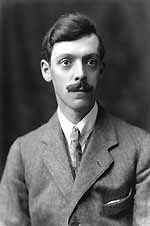
Back جون أندرسون (فيلسوف) Arabic جون اندرسون (فيلسوف من المملكه المتحده لبريطانيا العظمى و ايرلاندا) ARZ John Anderson (filósofo) Spanish John Anderson (filosofi) Finnish John Anderson (philosophe) French John Anderson (onye ọkà ihe ọmụma) IG ジョン・アンダーソン (哲学者) Japanese John Anderson (filozof) Polish John Anderson (filósofo) Portuguese Џон Андерсон Serbian
John Anderson | |
|---|---|
 John Anderson, University of Sydney, 1926 | |
| Born | 1 November 1893 Stonehouse, Lanarkshire, Scotland |
| Died | 6 July 1962 (aged 68) Sydney, New South Wales, Australia |
| Alma mater | University of Glasgow |
| Era | 20th-century philosophy |
| Region | Western philosophy |
| School | Analytic philosophy Australian realism Libertarianism |
| Notable students | John Passmore, A. J. Baker, David Armstrong, Futa Helu, David Stove, J. L. Mackie |
Main interests | Political philosophy, ethics, philosophy of sexuality, philosophy of religion |
Notable ideas | Systematic realism[1] |
John Anderson (1 November 1893 – 6 July 1962) was a Scottish philosopher who occupied the post of Challis Professor of Philosophy at Sydney University from 1927 to 1958. He founded the empirical brand of philosophy known as Australian realism.
Anderson's promotion of 'freethought' in all subjects, including politics and morality, was controversial and brought him into constant conflict with the august senate of the university. However, he is credited with educating a generation of influential 'Andersonian' thinkers and activists—some of whom helped to place Sydney in the forefront of the 'sexual revolution' of the 1950s and 1960s.
To Anderson, an acceptable philosophy must have significant 'sweep' and be capable of challenging and moulding ideas in every aspect of intellect and society.